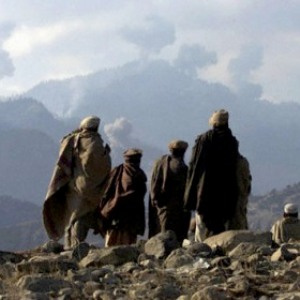Afghanistan in Turmoil
Adding more troops is not going to solve Afghanistan’s problem, nor does the bombing of suspected terrorist targets

When the Americans started the war in Afghanistan in 2002 and defeated the Taliban regime in a few weeks, nobody could have believed that after six and a half years, U.S. and other NATO forces as well as ordinary Afghan civilians are still being killed by the Taliban and Al-Qaeda forces on a daily basis. In June, more U.S. and NATO troops were killed in Afghanistan than in any previous month.
In the course of the last month, the activities of insurgents in Afghanistan became astonishing and unpredictable. In addition to the high number of suicide attacks which have resulted in the growing death toll, the Taliban made an assassination attempt against President Karzai in Kabul in April, and staged a jailbreak in Kandahar in June in which about 1000 prisoners were freed.
The increase in the number of coalition casualties, nevertheless, is a result of NATO offensive operations into areas in Eastern Afghanistan where their presence was infrequent while the Taliban forces have been very active in those areas. Interestingly enough, the Taliban has recently used explosive devices imported from Iraq.
The important question now is why the Taliban has become a real challenge for the NATO forces and the Afghan government or to use a Pentagon report’s language, why they have become a resilient insurgency?
There are a number of reasons for such a development. First, it is the overall policy of the U.S. and other Western countries towards Muslims, particularly the Palestinians, which has created anti-Western sentiments within Muslim societies. Second, it is the current U.S. policy in Iraq and Afghanistan which has caused great pain for the ordinary civilians in both countries. Attacks against innocent civilians which are done in the name of fighting terrorism have made foreign forces in Afghanistan and Iraq very unpopular among the general public. Third, it is the role being played by certain elements within the Pakistan military which has helped the insurgency to become more dangerous in their attacks against the NATO forces in Afghanistan.
It is no secret that Taliban enjoys the safe haven in some tribal areas in Afghanistan and the North-West Pakistan. It is also no secret that Taliban forces from Pakistan enter Afghanistan with the tacit approval of the Pakistan military elements resulting in deterioration of relations between Washington and Islamabad.
The Pentagon has suggested to augment the level of U.S. troops in Afghanistan to better deal with the insurgency. France and Germany have promised to send more troops to that country. However, as has been the case in Iraq, the surge is not going to help much to bring stability and tranquility back to Afghanistan, especially when it is estimated that at least 500000 troops are needed to control the situation.
One cannot ignore the fact that 300000 Najibullah forces along with 140000 Soviet troops could not bring about victory for the occupation forces. The same is true for NATO now which cannot defeat the Taliban militarily. Extremism in Afghanistan is a complex phenomenon. It is not controlled by a single country and even the Pakistan military cannot control them completely.
Adding more troops is not going to solve the problem, nor does the bombing of suspected terrorist targets, which has resulted in deaths of innocent civilians, diminish the activities of insurgency in Afghanistan. As long as the root causes of the problem, as explained above, are not tackled, one cannot hope to see a speedy solution to the Afghan problem.

